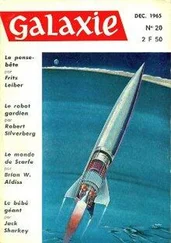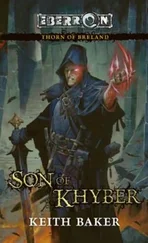"So maybe it would be good to lay low for twenty-four, forty-eight hours, you know?"
"I can't," I said.
"Suit yourself," he said. "I'll write you a scrip for some Keflex. Hopefully, that'll prevent any infection. Percocet for the pain. Just let me know when you need more."
The addict in me perked up. Downing three, four Percocet would be like taking a chemical vacation from the whole Bishop mess. I actually caught myself wondering how many refills Bain would write for me. Luckily, I realized what a great excuse he was giving me to fall apart. "I'd better skip anything abusable," I said. "I've had problems with that stuff before."
He took the revelation in stride. "I didn't know. We'll make do with Motrin, then."
"Thanks."
"If you get any fever, chills or swelling, come right back here. Agreed?"
"You got it," I said.
"The external sutures come out in ten days. The internal ones dissolve," he said.
"I'll see you in ten days, then." I gritted my teeth and sat up. My side felt as if it was ripping away from the rest of my body.
"The cops want to talk to you, by the way," Bain said. "Should I let them know you're awake?"
"Sure."
"These guys are Boston cops," he said. "But I did take the liberty to let a friend of yours from Nantucket know your condition. North Anderson? He told me he heard what had happened to you from colleagues of his on the force up here. I hope I didn't step out of line filling him in."
"No," I said. "I'm glad you talked with him."
Bain looked at me with concern. "You're sure you won't stay the night? A couple very pretty nurses on Blake eight."
"Maybe I'll take a rain check after I'm healed up," I said.
I told the Boston patrolmen everything I could remember, which was nothing much. Even the black boots had temporarily slipped my memory, let alone the odd turn of phrase spoken by my assailant. They had no clues, either. There'd been a mugging in the same spot about eight months before, but that didn't amount to much of a pattern, and it didn't do anything to push Darwin Bishop-represented, of course, by one of his thugs-out of my mind as the most likely culprit.
I waited for the rest of the blood to drip into my arm, swallowed three Motrin, and pulled myself together enough to roll off the gurney and maneuver into a big white button-down shirt I borrowed from Bain. I steeled myself for the elevator ride up to the ICU, but every jostling stop made me break out in a cold sweat.
I found Julia seated next to Tess's bed, with a twenty-something male sitter on the opposite side of the mattress, reading what looked like a law school textbook. He and I exchanged the standard greetings.
"What happened?" Julia said. "You look awful."
I told her.
She went pale. "This is my fault," she said. "I should never have taken the chance coming to your place."
"It could have been a random attack," I said, even though I knew better.
"We have to be much more careful," she said, shaking her head. "This is what I was afraid of."
I was feeling more determined than scared, which I probably should have taken as a warning sign that I was losing perspective. "I'm going to the island later today," I said. "I have to finish some work with North Anderson."
"When will you be back?" Her eyes filled up.
"A day. Maybe two."
"Win flies in today," she said. "I'm going to tell him I don't want him to see Tess. If he tries to, I'll file a restraining order with the court."
"I have someone who could help you with that," I said. "Carl Rossetti, a lawyer from the North End." I took her in my arms and held her a moment, trying to keep my breathing steady, despite the searing pain that gripped me whenever I raised my hands above waist-level. "I'll call to check in," I managed. I let go.
She leaned closer. "You know that I love you," she said.
Those words took me by surprise, not because I didn't feel the same way, but because I wasn't used to anyone keeping pace with my emotions. "I love you, too," I said.
I was headed out of the hospital lobby when Caroline Hallissey, the MGH chief resident in psychiatry, caught up with me. Hallissey, a gay activist, was around thirty years old, under five feet tall, and about 250 pounds. Her face might have been pretty at one time, but her features were swollen now. She wore a silver hoop through her right nostril and a silver bolt through the skin over her left eyebrow. I had heard that she and her partner had just adopted a daughter of their own. "Got a minute?" she said.
"Sure," I said.
I must have looked as bad as I felt. "You okay?" she asked.
"I'm fine. What's up?"
"I did the consult on that woman in the ICU. Julia Bishop? You're involved in that case, right?"
"Right," I said. "What do you think?"
"She's depressed, that's for sure," Hallissey said. "She has numerous neurovegetative signs. Sleep loss. Lack of appetite. Difficulty concentrating. Low self-esteem. The symptoms were even worse just after her twins were born, but she's very resistant to being treated for any of it."
"It's a tough time for her to think clearly about herself," I said.
"Agreed," she said. "I wouldn't force anything on her. She's not suicidal, in the classic sense-just alluding to not wanting to go on if her daughter should die." She paused. "The thing that troubled me more was that I felt a lot of hostility from her."
"Meaning?"
"She asked a lot about my credentials. What undergrad school did I graduate? Where did I go to medical school? Who supervises my work with patients? The whole nine yards."
I wondered if that had anything to do with Hallissey's appearance. "She's in the middle of a homicide investigation," I said. "She doesn't know exactly who to trust."
"That could be part of it," Hallissey said. "But this felt more personal than that. Like she had an issue with me." She looked away, her eyes thinning as she struggled for words to describe her interaction with Julia. "I got the same feeling from her that I used to get from male patients who didn't respect female physicians. The ones who wanted to make sure I knew it."
"Not every psychiatrist-patient interaction is a love match," I said.
Hallissey looked directly at me. "I don't mean to step out of line, but it doesn't sound like you want to hear any of this. Maybe it's not a good time to talk."
I shook my head. Hallissey was right. I was automatically discounting her negative feedback about Julia. "I do want to hear it," I said. "Please. Tell me what else you noticed."
She hesitated.
"I'm listening," I said.
"Maybe it's the way she is with women," Hallissey said. "I mean, I've seen her be very cordial with Dr. Karlstein. And you don't seem to have any problem with her. But a couple of the female nurses in the ICU told me she treats them like she owns them. They definitely get bad vibes." She shrugged. "She supposedly modeled, right? Someone mentioned Elite or something."
The word supposedly stuck out like a sore thumb. I wondered whether jealousy was blurring Hallissey's therapeutic vision. Psychiatrists call it countertransference -the clinician's own feelings boomeranging back as if they had something to do with the patient's inner world. "She did model," I said. I pushed further to gauge Hallissey's reaction. "I guess she was pretty successful at it. The cover of Cosmo, Vogue, all that. Big time."
"Of course she was successful," Hallissey said. "It's textbook. She's magnificent-looking, but she has no real self-esteem. She exists for men. She needs them to adore her because she loathes herself. And that's why she immediately feels hatred toward me. Because I'm a woman."
The idea that Julia might harbor ill-will toward females troubled me. She had given birth to twin girls, after all. "Do you think she's a risk to the baby?" I asked Hallissey. "You feel the sitter is necessary?"
Читать дальше












